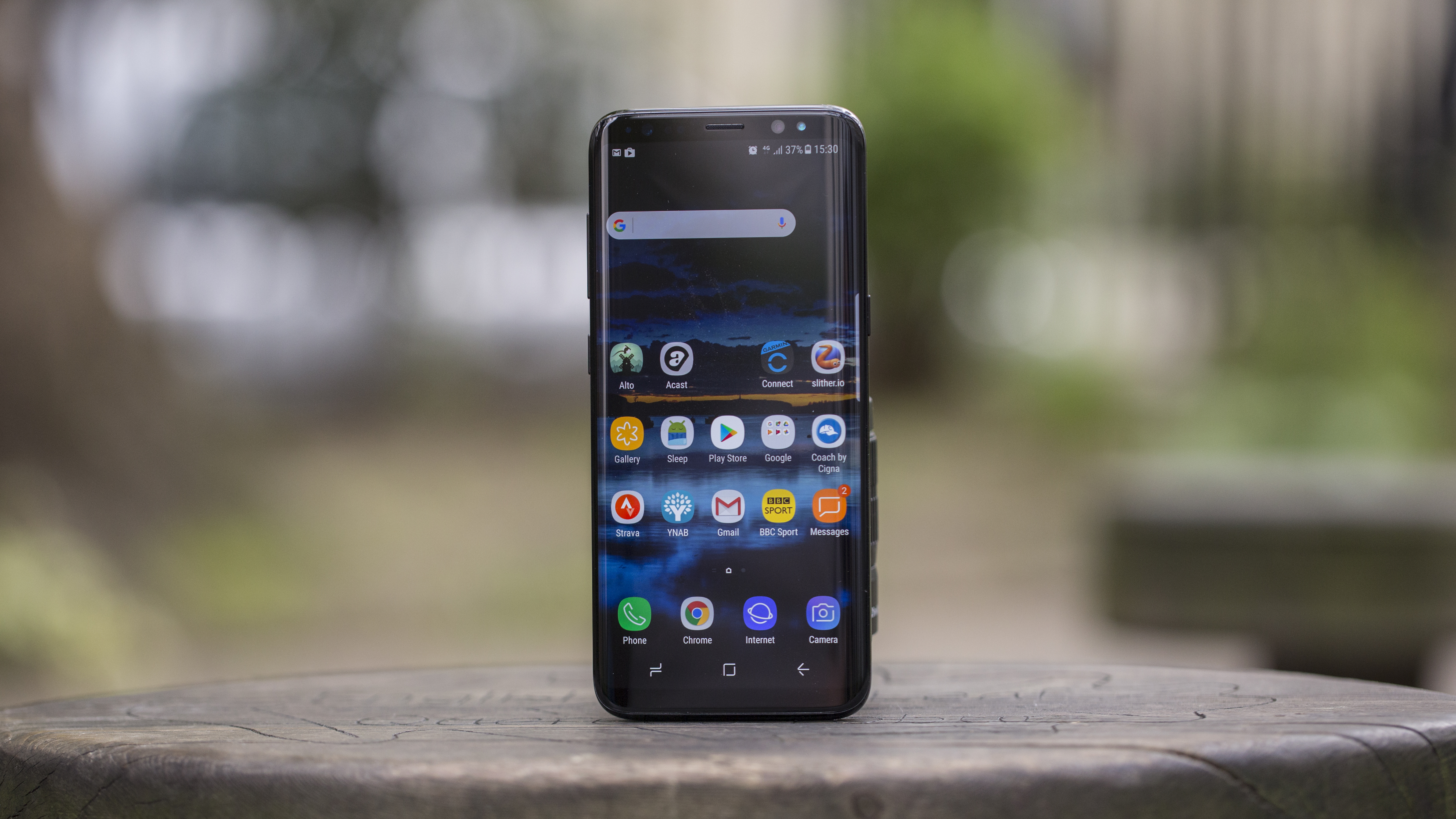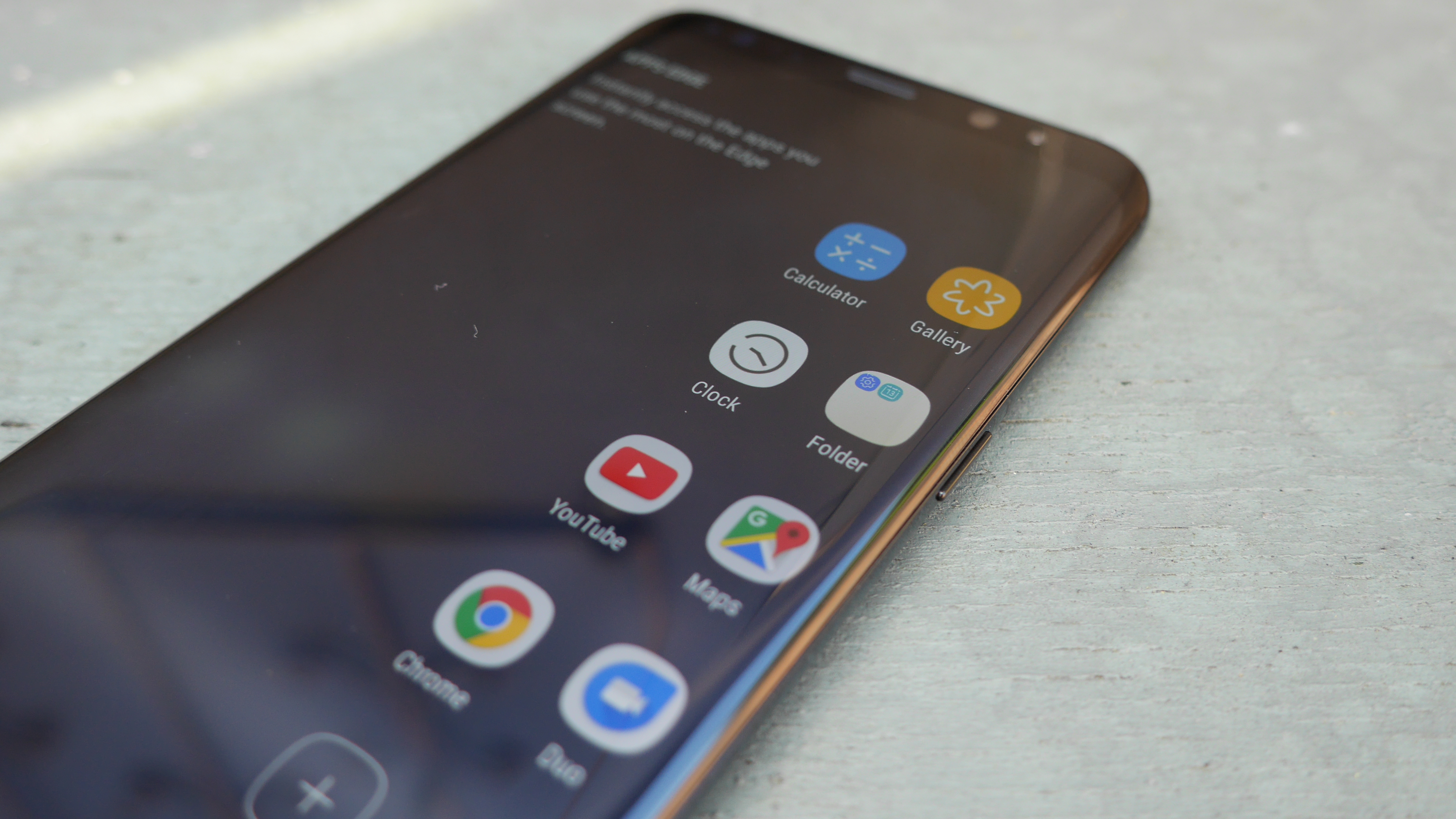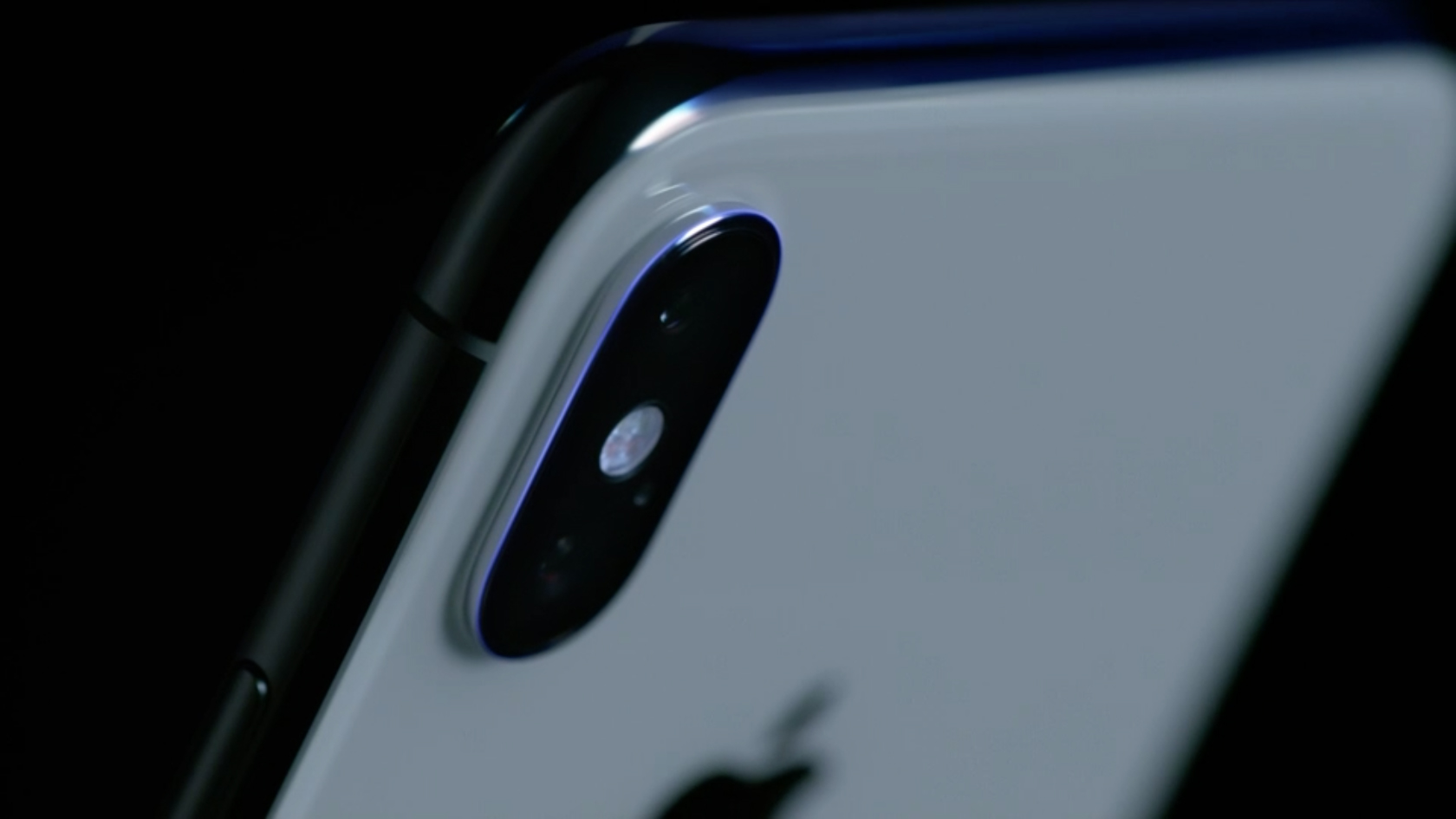The iPhone X is here, and it’s all-change for Apple, with the latest flagship sporting a completely new design, a massive screen, vastly improved specs and lots of new features.
It’s set to be a killer phone in other words, but the iPhone X isn’t the first impressive handset to land this year, as the monstrous Samsung Galaxy S8 has had a major head-start.
That too has a big screen, a great design and loads of high-tech features – so just how do these two phones compare? To answer that we’ve put them head to head across a range of categories.
- Check out our hands-on: Apple Watch 3 review
- Check out our hands-on: iPhone 8 review
- Check out our hands-on: iPhone 8 Plus review
- Check out our hands-on: iPhone X review
iPhone X vs Samsung Galaxy S8 design
The iPhone X has quite a lot in common with the Samsung Galaxy S8 from a design perspective, as both phones have a metal frame and a glass back, as well as hardly any bezel around their screens.
In the iPhone X’s case the only real bezel is a small 'notch' at the top of the display, where you’ll find the front-facing camera and sensors. The Samsung Galaxy S8 isn’t quite as free of clutter, with a slim strip above and below the screen, but there’s still little other than the display on the front.
The biggest difference when viewing the phones front-on though is that the Samsung Galaxy S8’s display curves around the edges, while the iPhone X’s doesn’t.
From the back both phones are fairly plain-looking, with the main element being a single-lens camera and fingerprint scanner in the Galaxy S8’s case, and a dual-lens camera in the iPhone X’s, with both phones also sporting company logos on the rear.
Both phones are more durable than they might look, as the Galaxy S8 is IP68-certified, meaning it can be submerged in up to 1.5 meters of water for up to 30 minutes, while the iPhone X is apparently water- and dust-resistant to a 'microscopic' level.
Perhaps the most obvious visual difference though is the colors you can get these two phones in. The Samsung Galaxy S8 is available in Midnight Black, Orchid Gray, Arctic Silver, Coral Blue and Maple Gold (though not all shades are available everywhere), while the iPhone X is launching in just Space Gray and Silver.
iPhone X vs Samsung Galaxy S8 display
Both the iPhone X and Samsung Galaxy S8 have 5.8-inch OLED screens, and both also support HDR content and fill almost the entire front of the phone, so there’s a lot of similarity there, but there are plenty of differences too, the most immediately obvious being the fact that the S8’s is curved, while the iPhone X’s is flat.
They’re also different resolutions, with the iPhone X coming in at 2436 x 1125 for 458 pixels per inch, while the Samsung Galaxy S8’s screen is 1440 x 2960 for 570 pixels per inch, so Samsung’s phone is higher-resolution and sharper.

But the iPhone X has a True Tone display, which adjusts the white balance to suit your environment.
Other differences include the ways you can interact with their screens. The iPhone X has 3D Touch, which lets you display different menus or interact with apps in different ways depending on whether you use a light or heavy tap. It also has gesture controls in place of the home button.
The Samsung Galaxy S8 meanwhile lets you swipe across the curved edges to bring up menus and shortcuts to apps, contacts or any number of other things you might want quick access to.
iPhone X vs Samsung Galaxy S8 OS and power
The iPhone uses Apple’s brand-new A11 Bionic chipset. It’s a six-core one and by far Apple's fastest mobile chipset yet. There's no official word yet on how much RAM the iPhone X has, but rumors peg it at 3GB.
The Samsung Galaxy S8 meanwhile has an octa-core chipset (a Snapdragon 835 in the US or an Exynos 8895 elsewhere) and 4GB of RAM.
While those numbers might sound bigger, Apple’s phones never fail to impress from a power perspective, so we’re confident the iPhone X will give the S8 a run for its money. We’ll let you know exactly how powerful it seems once we’ve had some time with it.

While the Galaxy S8 is very powerful and the iPhone X almost certainly is too, one key difference between them is the amount of storage they have. For the iPhone X you can choose between a 64GB and 256GB.
For the Samsung Galaxy S8 there’s only a 64GB size, but you also get a microSD card slot with support for cards of up to 256GB, which the iPhone X doesn’t have.
And of course, the two phones also have different operating systems. The iPhone X runs iOS 11, while the Samsung Galaxy S8 runs Android Nougat.
Both are very polished, modern mobile operating systems and both phones are likely to get updated to new OS versions – though the iPhone X will likely get them on day one, while the S8 will have to wait, as it’s currently doing for Android Oreo.
iPhone X vs Samsung Galaxy S8 camera and battery
The iPhone X has a 12MP dual-lens camera, like the iPhone 7 Plus, although not exactly like it, as Apple’s new camera has a few new skills.
As well as being usable to create a bokeh effect by blurring the background of images, the iPhone X’s camera also has optical image stabilization on both lenses, to help keep your shots steady and in focus.
Video has also been upgraded, with 4K video at able to be shot at up to 60fps and 1080p slo-mo video at 240fps.
More significantly though, it also sports augmented reality (AR) features opening up a world of new opportunities in apps, from seeing constellations come to life in front of you to playing AR games on your table.
Around the front there's a 7MP camera, which also has the ability to use depth of field effects. And it includes a 3D face scanner, so you can unlock your phone just by looking at it. This is supposedly very advanced, as it should be able to recognize you even if you change your hair or wear a hat, yet won't be fooled by a picture.

The Samsung Galaxy S8 just has a single lens 12MP camera on the back, but it too includes optical image stabilization and can take great, detailed shots, helped by its large f/1.7 aperture, which means more light can get in than on many smartphone cameras. 4K video is capped at 30fps and 1080p at 60fps, but there’s also a capable 8MP front-facing camera.
And it has a face scanner of its own, though it’s less advanced than Apple’s take, as it only scans a 2D image of your face.
Apple hasn’t revealed the iPhone X’s battery size, but rumors suggest it has a 2,716mAh one, and Apple has said it will last for 2 hours longer than the iPhone 7. It also supports wireless charging, which is a first for an Apple phone.
The Samsung Galaxy S8 has a 3,000mAh battery and that too supports wireless charging, as well as fast charging. In our tests, we found it to comfortably last a day or more of moderate use between charges, but like so many other phones you’ll probably need to plug it in when you go to bed.
iPhone X vs Samsung Galaxy S8 price
The iPhone X starts at $999/£999/AU$1,579 for the 64GB model and will also be available in a 256GB size for $1,149/£1,149/AU$1,829.
That’s a lot of money. Even more in fact than the Samsung Galaxy S8, which costs $725/£639/AU$1,199, though can be found for less if you shop around.
Takeaway
These two behemoths are more similar than you might expect, as both the iPhone X and the Samsung Galaxy S8 have a 5.8-inch screen, a glass back, water resistance, wireless charging and lots of power.
But there are still plenty of differences. The iPhone X is flat while the Galaxy S8 is curved, the iPhone X has a dual-lens camera while the Galaxy S8’s is a single lens one, the iPhone X has more storage but no microSD card slot, and the iPhone X runs iOS, while the Samsung Galaxy S8 runs Android. And those are just the headline differences.
As for which is better, well, you’ll just have to wait for our full iPhone X review and the position it takes in our best phones chart to find that out.
- Check out our hands-on: Apple Watch 3 review
- Check out our hands-on: iPhone 8 review
- Check out our hands-on: iPhone 8 Plus review
- Check out our hands-on: iPhone X review
from TechRadar - All the latest technology news http://www.techradar.com/news/iphone-x-vs-samsung-galaxy-s8
No comments:
Post a Comment